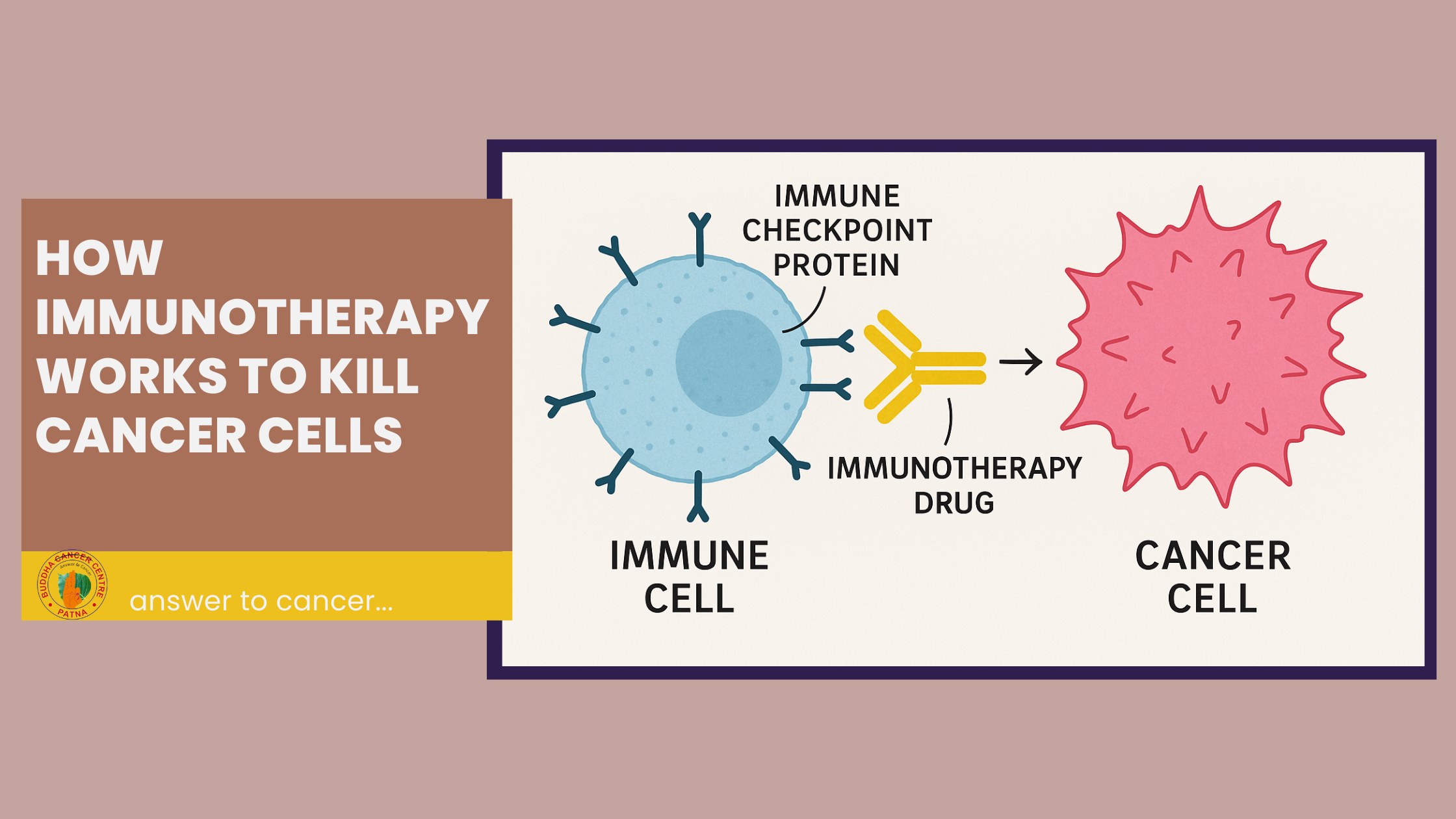


Cancer is one of the most challenging diseases affecting millions of people worldwide.
Traditional treatments like chemotherapy and radiation target cancer cells directly, but
they can also harm healthy cells. Immunotherapy, on the other hand, harnesses the body's
immune system to specifically identify and target cancer cells, marking a revolutionary
advancement in cancer treatment.
The immune system is a complex network of cells, proteins, and tissues that defends the body
against harmful invaders like bacteria, viruses, and abnormal cells. Normally, immune cells,
particularly T cells, can detect and destroy abnormal cells, including cancerous ones.
However, cancer cells have developed mechanisms to evade immune detection, allowing them to
grow uncontrollably.
Immunotherapy enhances the immune system’s ability to recognize and eliminate cancer cells.
This approach works through various mechanisms:
Cancer cells use immune checkpoints—molecular brakes that prevent an overactive immune
response—to evade detection. Checkpoint inhibitors block these signals, allowing T cells to
attack cancer cells. Common checkpoint inhibitors include:
Chimeric Antigen Receptor T-cell (CAR-T) therapy is a groundbreaking treatment where a
patient’s T cells are genetically engineered to recognize and attack specific cancer cells.
These modified T cells are reinfused into the patient, where they multiply and target
cancerous cells effectively. CAR-T therapy has shown promising results in blood cancers like
leukemia and lymphoma.
Unlike traditional vaccines that prevent infections, cancer vaccines stimulate the immune
system to recognize and attack cancer cells. Examples include:
These lab-engineered antibodies can directly bind to cancer cells, marking them for
destruction by the immune system. Some monoclonal antibodies, like Rituximab and
Trastuzumab, work by targeting specific proteins on cancer cells, leading to their
elimination.
Cytokines, such as interleukins and interferons, are signaling proteins that boost immune
response. Drugs like Interleukin-2 (IL-2) and Interferon-alpha enhance the activity of
immune cells to fight cancer.
Immunotherapy has revolutionized cancer treatment, offering new hope for patients with
previously untreatable cancers. However, it's not a magic bullet. Not all patients respond
to immunotherapy, and it can cause side effects. Ongoing research is focused on:
Immunotherapy has revolutionized cancer treatment by empowering the body’s own immune system
to fight cancer. As research progresses, we can expect even more effective and targeted
immunotherapies to emerge, offering new hope for cancer patients worldwide.